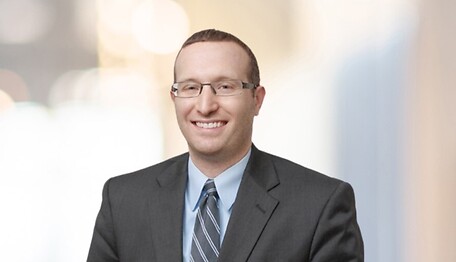PA Supreme Court Protects Hospital Credentialing Files and Data Bank Disclosures From Discovery
The Supreme Court of Pennsylvania has ruled that the records of any hospital committee which performs a peer-review function are entirely exempt from discovery in Leadbitter v. Keystone Anesthesia Consultants, Ltd., Pa., 2021 Pa. LEXIS 3398 (August 17, 2021). In so ruling in a decision from which there was no dissent, the court returns Pennsylvania peer-review protections to what had long been understood prior to 2018, when a split Supreme Court issued Reginelli v. Boggs, 645 Pa. 470, 181 A.3d 293 (Pa. 2018).
For more than four decades, the Pennsylvania Peer Review Protection Act (PRPA), 63 Pa. Stat. §§425.1-425.4 was widely understood to exempt from discovery all physician evaluations conducted by any hospital committee performing peer-review. The PRPA reflected a public policy that embraced the reality that the practice of medicine is best policed and regulated by experienced, practicing physicians.
Likewise, the 1990 Health Care Quality Improvement Act, 42 U.S.C. §§11101-11152, was understood to protect from discovery all information maintained by the National Practitioner Data Bank (NPDB) regarding adverse physician licensing actions and malpractice settlements or verdicts on behalf of physicians. Nonetheless, in its 2018 Reginelli opinion, split 4-3, the Supreme Court of Pennsylvania narrowly construed the protections of the PRPA and permitted discovery of the complete performance file of the emergency department physician.
In Leadbitter, the three Reginelli dissenters were joined by the four Reginelli majority Justices to buttress the prior, long-standing, broad exemption from civil discovery for all records – including physician performance reviews and disclosures from the NPDB - of any hospital committee that undertakes peer-review, regardless of the name by which such a committee is identified.
Leadbitter arose from complications post-spinal surgery in Allegheny County, Pennsylvania. Among other claims, the plaintiffs alleged that the hospital was negligent in credentialing and privileging the subject surgeon. In discovery, the plaintiffs requested production of the surgeon’s complete credentialing and privileging files maintained by the hospital’s credentialing committee. Although the hospital provided discoverable materials, it withheld documents containing professional opinions relating to the surgeon’s competence, as well as documents provided to the hospital by the NPDB. Citing the 2018 Reginelli split decision, the Common Pleas Court ordered the hospital to produce the withheld documents; the Superior Court, noting that it felt “constrained” by Reginelii, affirmed.
On appeal, the Supreme Court reversed and vacated the Superior Court decision and reaffirmed the legislative peer-review protections found in both state and federal statutes. Relying on statutes and regulations that define how Pennsylvania hospitals must operate, the Leadbitter court ruled that the PRPA covers “any committee engaging in peer-review” regardless of the name or title of the committee at issue. In so ruling, the court agreed with many courts around the country interpreting similar peer-review discovery exemptions.
Leadbitter highlights the need for hospital-defendants to assert well-reasoned objections to overbroad discovery requests, as well as the need to buttress objections with a detailed privilege log. More importantly, Leadbitter restores to Pennsylvania hospitals the confidentiality protections the General Assembly had long ago determined were crucial for ensuring quality hospital care. It permits independent physician members of a hospital committee to render the necessary objective, frank and sometimes critical analysis of other physicians. From those evaluations, hospitals make crucial decisions about the scope of each physician’s privilege to practice therein. With the 2018 Reginelli decision duly confined to its narrow facts, Pennsylvania hospitals can again advance healthcare by having their committees rigorously evaluate individual physicians.
White and Williams is ready to work with healthcare systems, hospitals, physicians, and other licensed healthcare professionals. If you have any questions or would like additional information, please contact Joshua Gajer (gajerj@whiteandwilliams.com; 215.864.6837), Bill Kennedy (kennedyw@whiteandwilliams.com; 215.864.6816) or another member of the Healthcare Group.
PRACTICE AREAS
Practice Areas
KEY ATTORNEYS
-
Partner

